Following the United Kingdom’s decision to block Huawei, Europe faces a fateful choice in how it responds to Beijing’s China First policies, argues Constanze Stelzenmüller. This post originally appeared in the Financial Times.
For months, most EU countries hid behind the U.K. government’s confident assertion that it could manage the risk of allowing Huawei, the Chinese telecommunications giant, to help build its 5G networks. They hoped this would let them have it both ways: get a swift, cost-efficient cellular telephony upgrade from China, while avoiding trouble with their U.S. ally. But now that Britain has moved to block Huawei’s participation, Europeans find themselves deprived of cover, and both the US and China are breathing fire down their necks.
Beijing is already threatening retaliation against London. Meanwhile, Robert O’Brien, the U.S. national security adviser, met European counterparts in Paris last week to press them to exclude Huawei from their networks. Mateusz Morawiecki, Poland’s prime minister, lost no time in calling for “our European neighbours” to follow the US line.
He has a point. The COVID-19 crisis has taught the entire globe that data networks are its central nervous system: not just for governments and businesses, but for ordinary people everywhere. Think this time is uniquely hard? It is. Now imagine it without video calls, email, internet and mobile phones.
Americans and Europeans used to fight about whether there was a “smoking gun” indicating that Huawei’s equipment was being used for espionage. This is still not proven, but it is plausible. No Chinese company is exempt from pressure by the Chinese party-state.
Today, the national security case against Huawei is made by the shift in China’s behavior: its hardening authoritarianism and persecution of minorities at home; its drive for regional hegemony; its aggressive pursuit of physical, economic and digital assets in Europe; and its crackdown on the autonomy of Hong Kong, in flagrant breach of international law.
Most recently, Beijing has ramped up what Asia expert Andrew Small describes as predatory “attempts to exploit political and economic vulnerabilities in Europe.” Its methods range from disinformation operations to support for populists and threats by senior diplomats. This changes the context of permitting China to provide key components of Europe’s digital ecosystem.
Europeans, in fact, had already shifted from their earlier embrace of China to a more guarded posture of balancing and limiting Chinese influence. An official EU document from 2019 calls China a “systemic rival.” The EU’s latest industrial, connectivity and digital strategies reflect these concerns. While resisting outright bans, many of the EU’s 27 states are overhauling their network security standards. France’s cyber security agency told operators this month to avoid switching to Huawei. The Italian government has issued guidelines that might lead to the exclusion of Huawei.
But Mr Morawiecki was thinking of a particular European neighbor, which now finds itself in an unpleasant dilemma: Germany. It is China’s chief interlocutor in the west after the U.S. It is Europe’s pivotal power and largest telecoms market. China is also its biggest trade partner. German critics of China have pounced on the opportunity arising from the U.K. decision. “It’s Berlin’s turn to move!” tweeted Reinhard Bütikofer, a Green member of the European Parliament.
In Germany’s parliament, critics of Chancellor Angela Merkel’s circumspect stance on Huawei and China range from the Greens, Free Democrats and hard-right Alternative for Germany to her Social Democrat coalition partners, who have published forceful strategy papers on China and 5G. They also include many of her own Christian Democrats, led by Norbert Röttgen, chairman of the Bundestag’s foreign policy committee.
Arrayed in defense of Huawei and Beijing are economics minister Peter Altmaier, the head of the network regulatory agency, the cellular provider Deutsche Telekom, and the powerful chemical and car industries, desperate for Chinese market access to lift them out of coronavirus-induced recession.
For Merkel, whose fourth and last term will end in autumn 2021, all this could not come at a worse time. Germany has just taken on the rotating EU presidency for six months. She had hoped to sign an EU-China investment deal at a summit in Leipzig in September. But the deal is not ready, and the summit is postponed. Instead, Ms Merkel has pledged to lead the EU out of economic crisis by putting Germany’s wealth behind an unprecedented €1.8tn recovery package.
U.S. president Donald Trump’s bullying of allies is unhelpful at a time when Washington and Brussels should be working together. Beijing’s China First policies require a firm, principled European response. As Kevin Rudd, the former Australian prime minister, has observed, the US and China too have been diminished by the pandemic. In an interdependent world, the US needs allies and China needs markets. Germany, like the U.K., is no more than a middle power. But Europe has real leverage, if it is united.
Merkel, as she considers her legacy, might do well to recall that it was in Leipzig that tens of thousands of her fellow East Germans stared down heavily armed police and marched for liberty in 1989. Perhaps it is time to take the side of those marching for freedom and democracy in Asia today.
The Brookings Institution is committed to quality, independence, and impact.
We are supported by a diverse array of funders. In line with our values and policies, each Brookings publication represents the sole views of its author(s).

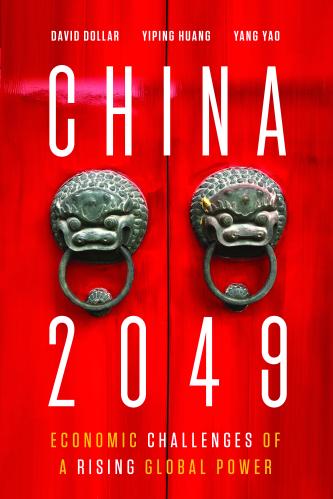

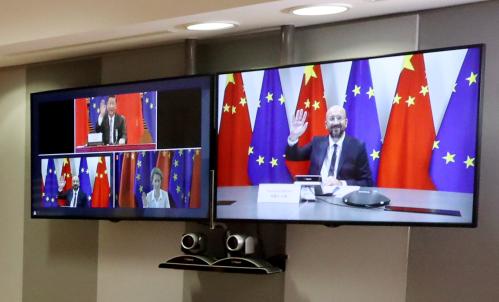
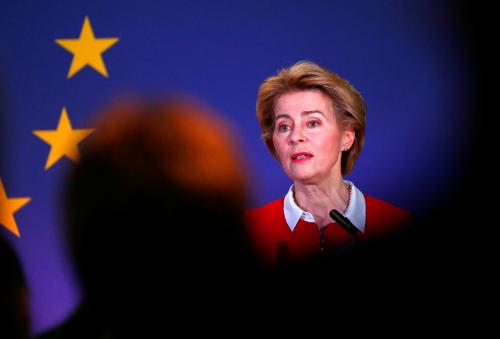
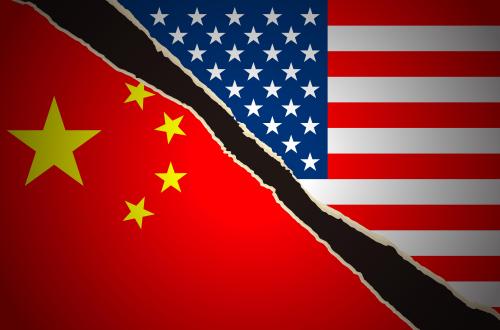

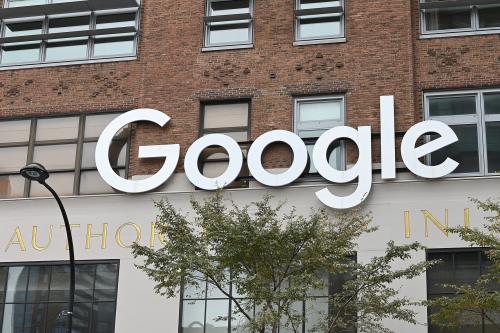

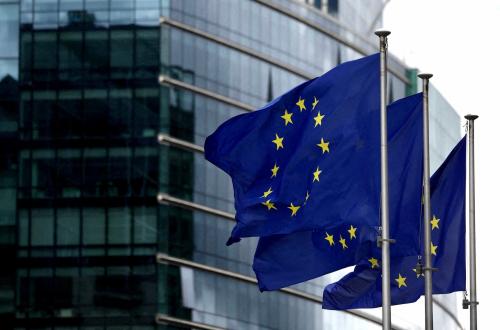
Commentary
Europe faces a fateful choice on Huawei
July 17, 2020